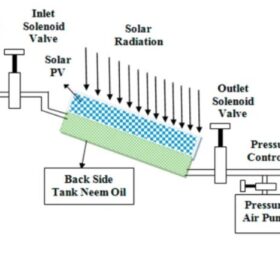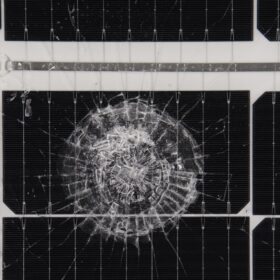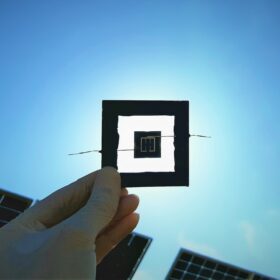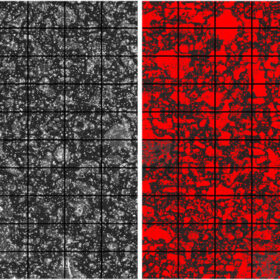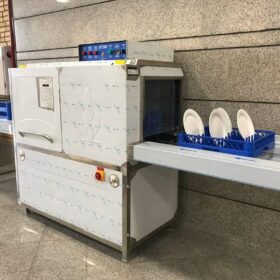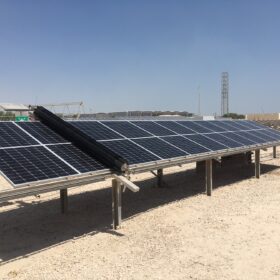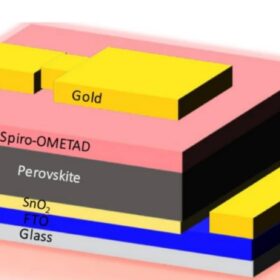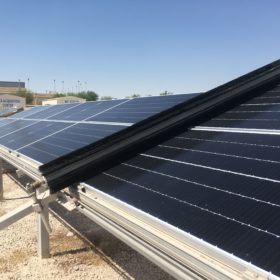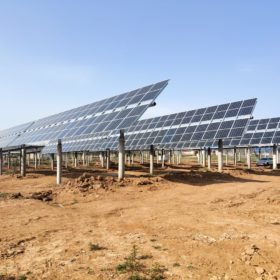Solar module cooling tech based on waste neem oil
An international research team has placed a neem oil tank on the back of solar modules for cooling purposes. The proposed solution reportedly improves PV panel performance by up to 17.8%.
Monocrystalline solar modules more resistant to hail than polycrystalline panels
Scientists from Pakistan, Qatar and Saudi Arabia have conceived a new experimental setup to conduct hail impact tests for photovoltaic modules. The first tests showed that monocrystalline panels lose less efficiency than their polycrystalline counterparts with the same number of busbars.
UNESCO reports rapid growth of solar research in Arab countries
Arab countries are “punching above” their weight in their contribution to academic research on photovoltaics, according to analysis by UNESCO. The region is expanding its global share of scientific publishing across all key energy topics, but it is highest in solar.
Researchers apply thresholding to PV soiling image analysis
Thresholding methods have commonly been used to characterize the soiling accumulated on glass coupons. Researchers led by the Sapienza University of Rome have identified 16 automatic thresholding methods that may be used for analyzing soiling on PV panels.
Using air conditioning to cool down PV modules, dry dishes
An international research team has investigated how air conditioning may be used to reduce the operating temperature of PV panels. The researchers not only found that the proposed approach is technically viable, but they also tested the use of excess heat from the panels for drying dishes.
The Hydrogen Stream: Gulf nations moving forward with tech cooperation
Acwa Power and Eni have signed a hydrogen development deal, while AFC Energy has signed an agreement with Tamgo to sell hydrogen generators.
Assessing shading effect of cleaning robots in solar farms
Qatari researchers have looked at the degree to which cleaning robots reduce PV plants’ yield with the shade they produce on the panels. They found that module orientation has an enormous effect on the impact of shadow.
Triple cation perovskite PV cell with ETL based on tin(IV) oxide hits 17.1% efficiency
Qatari researchers have incorporated an electron transport layer (ETL) made of tin(IV) oxide into a perovskite solar cell through air-thermal-annealing, resulting in better efficiency and stability. The device demonstrated an open-circuit voltage of 1.045 V, a short-circuit current of 22.01 mA/cm2, and a fill factor of 74.3%.
Assessing vibrations in solar modules due to robot cleaning
Qatari researchers have looked at the degree to which cleaning robots could threaten the physical integrity of solar panels. They found that cleaning machines have a very minimal impact and that modules of similar sizes tend to exhibit roughly the same amount of vibration.
Chinese PV Industry Brief: Trina to supply 875 MW of trackers for Qatar solar plants
Trina Solar has signed an 875 MW tracker supply deal with Samsung C&T for Qatar’s new “IC Solar” project, while Chint said it aims to sell up to 8 GW of residential PV assets by the end of 2023.
